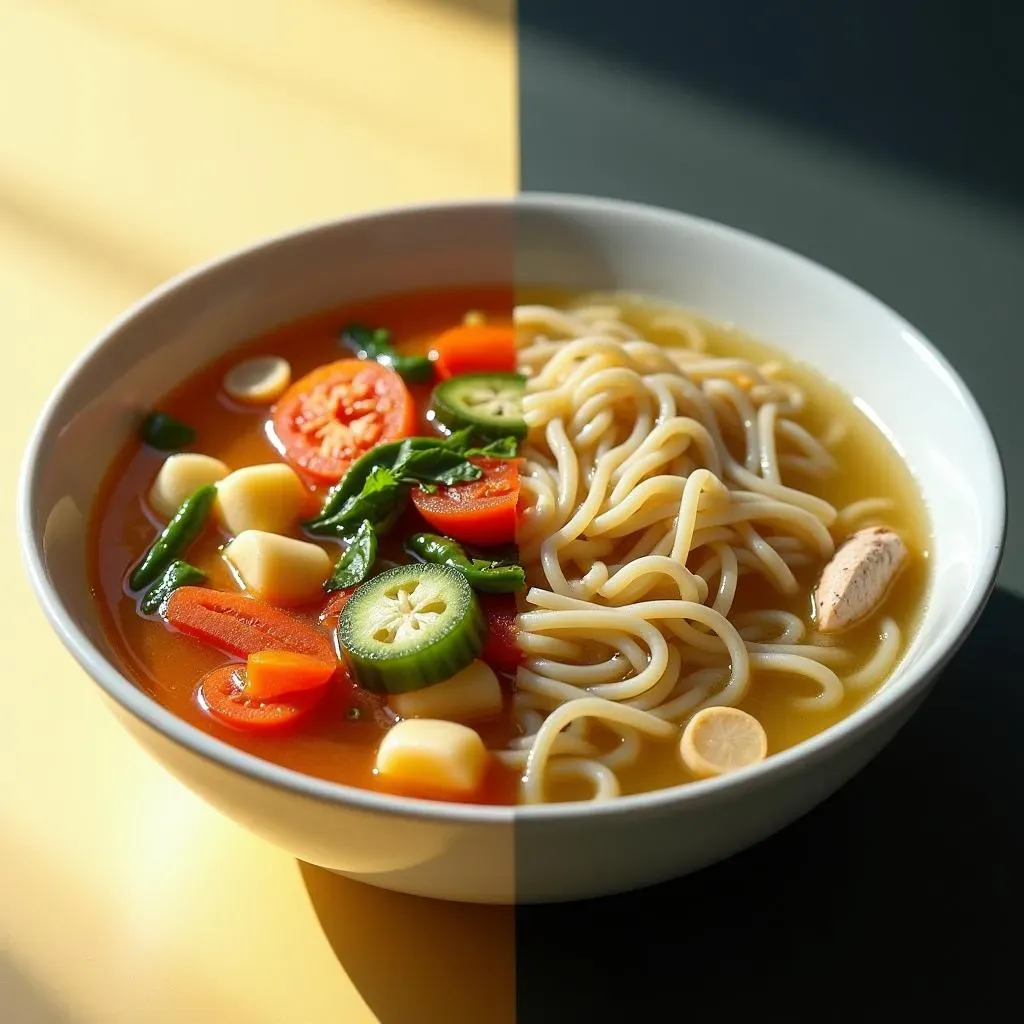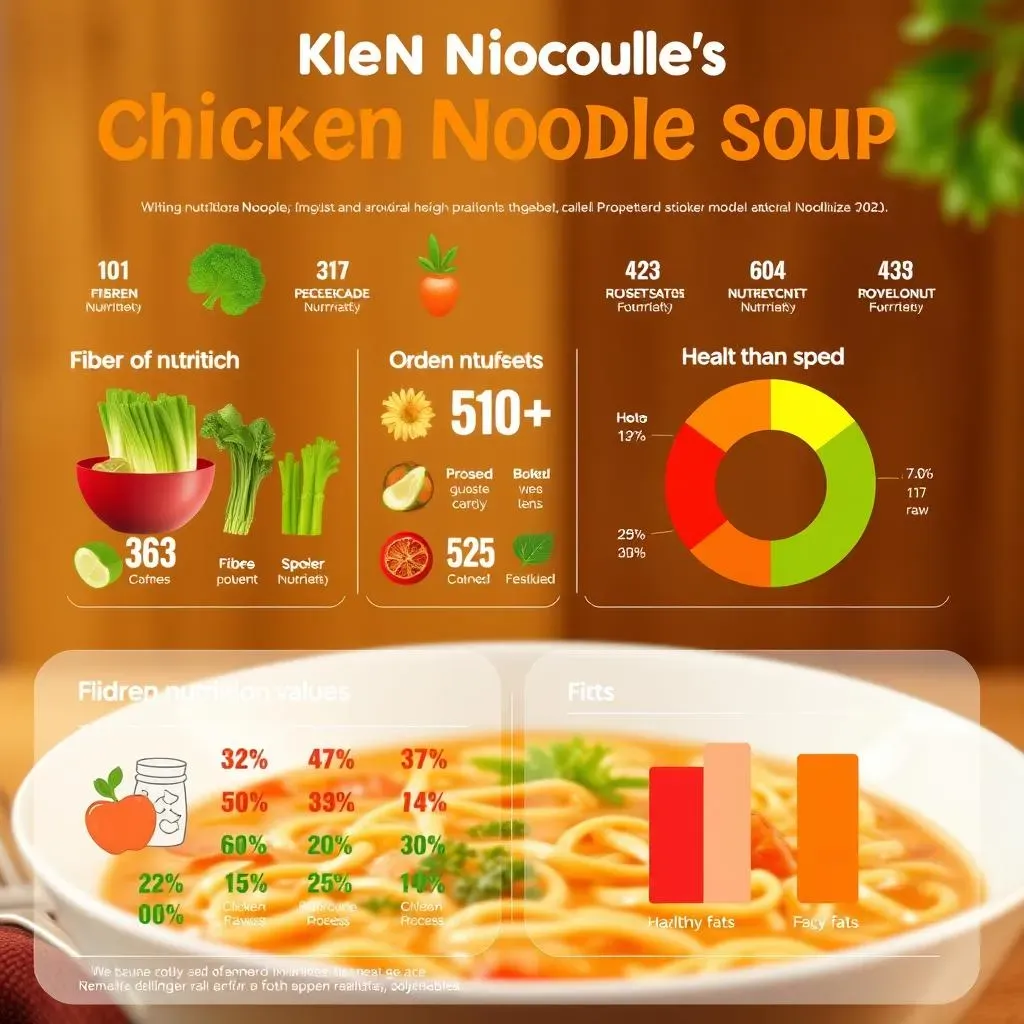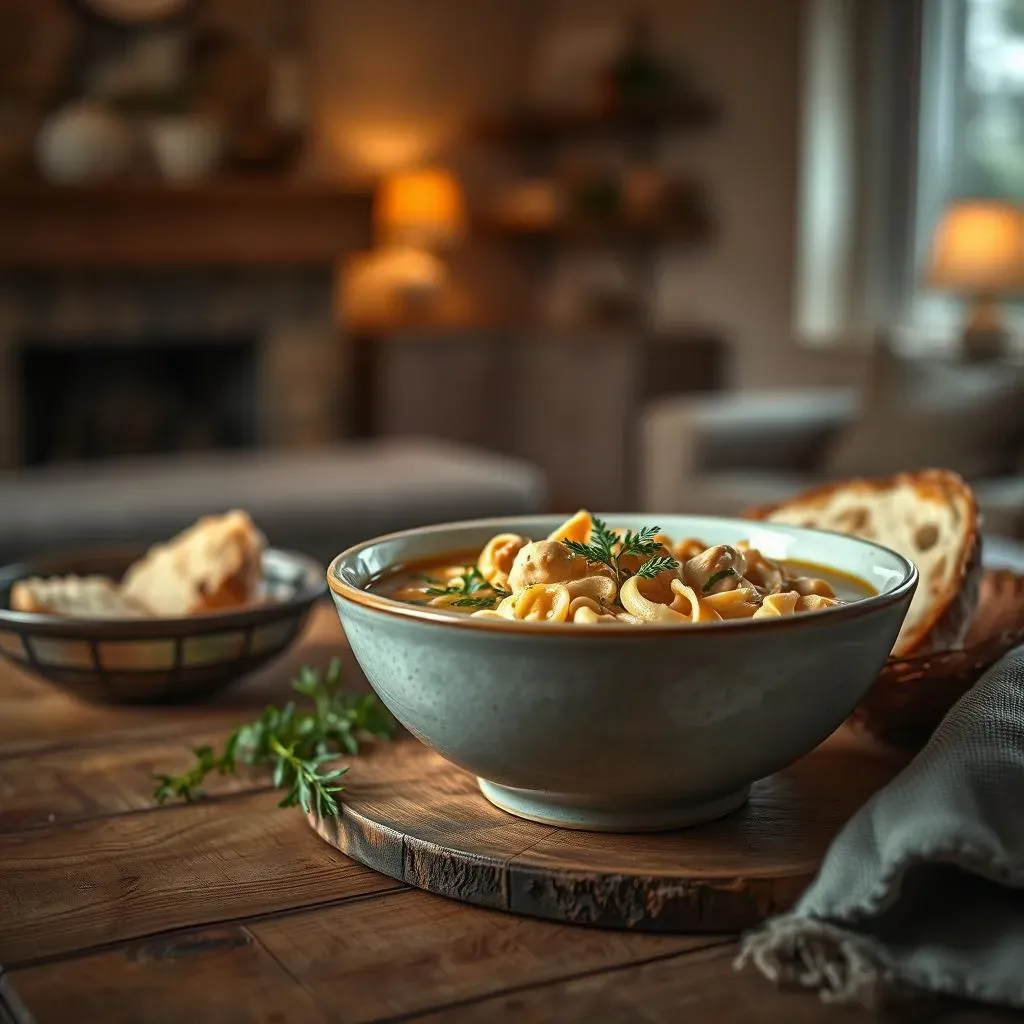Table of Contents
Chicken noodle soup: it's the go-to comfort food when you're feeling under the weather, right? We've all been there, snuggled up with a steaming bowl, convinced it's the cure-all. But, is it really the health booster we imagine it to be? Let's face it, sometimes our nostalgic favorites aren't as good for us as we think. This article will explore the reality behind those warm, comforting bowls of chicken noodle soup. We'll look at the potential nutritional pitfalls, like high sodium levels and hidden fats, that might make you rethink your go-to sick day meal. We will look at the ingredients individually and see if they are as beneficial as we think, or if there are better options for you. We'll break down what really makes up this classic dish, and see if the common belief of "what are the benefits of chicken noodle soup" holds up to scrutiny. By the end, you'll be able to make informed decisions about whether to reach for that can or get cooking yourself.
Health Conditions and Nutrition

Health Conditions and Nutrition
The Sodium Situation
Okay, so let's talk about sodium. It’s that sneaky ingredient that can turn a seemingly innocent bowl of soup into a salt bomb. Many canned and restaurant versions of chicken noodle soup are loaded with sodium, often far exceeding what's good for us, especially if you're watching your blood pressure. It’s like they're trying to preserve the soup for the next century! I remember once I felt so bloated after eating a can of soup, I looked like I was about to float away. It's not just about taste; too much sodium can cause real health issues.
High sodium intake can contribute to hypertension, which is a fancy word for high blood pressure. This puts a strain on your heart and blood vessels over time. So, while you might think you're doing something good for yourself when you're sick, you might be inadvertently making things worse if you're not careful. Always check the labels, even on stuff you think is healthy, you'll be surprised.
Protein Power and the Meat Myth
Let’s talk protein. Chicken noodle soup, you'd think, would be a great protein source, right? Well, it depends on the chicken. Many brands use dark meat, which has more fat and less protein than white meat. And honestly, some of those canned soups have barely any chicken at all. It's like they just waved a chicken over the pot and called it a day. When you are feeling sick, you need protein to help your body heal. A little bit of protein is not going to cut it.
To put this into perspective, a cup of diced white meat chicken packs about 43 grams of protein, while a cup of some popular canned chicken noodle soup might only have around 14 grams. That's a huge difference! It's like comparing a marathon runner to someone who just walks to the mailbox. If you are trying to heal, you need to make sure you are getting enough protein.
Type of Chicken | Protein per cup |
|---|---|
Diced white meat chicken | 43 grams |
Campbell's Homestyle Chicken soup | 14 grams |
Noodle Nonsense and Broth Blues
Now, let's get to the noodles. Most chicken noodle soups use white pasta, which, let's be honest, is pretty much devoid of fiber. It's like eating fluffy clouds that do nothing for your digestive system. Fiber is your friend, it keeps everything moving and helps you feel full. When you are not feeling great, the last thing you want is digestive issues.
And what about the broth? It can be a good source of nutrients, but store-bought broths often have sky-high sodium levels. Some brands sneak in over 1,200 milligrams of sodium per cup. It is like they are trying to make your blood pressure skyrocket. When you are buying broth, look for "low sodium" instead of "lower" or "less" sodium. Those terms are often misleading. You need to be a detective when you are shopping for soup ingredients.
The Nutritional Value of Chicken Noodle Soup Ingredients

The Nutritional Value of Chicken Noodle Soup Ingredients
Veggie Variety: Fiber and Nutrients
Let's not forget the veggies, or lack thereof, in some chicken noodle soups. Celery, onions, and carrots are often thrown in, and they can add some fiber and nutrients. But honestly, many canned soups have a pathetic amount of these veggies, it's like they are playing hide and seek. You might find a few sad, mushy pieces floating around, but not enough to make a real difference in your daily fiber intake. Fiber is super important for digestion and keeping you full, so skimping on veggies is a big no-no.
I always say, "If your soup doesn't have enough veggies, you are just drinking hot salt water". And that's the truth. If you are making your own soup, load up on colorful vegetables. They provide so many good things for your body. Don't be afraid to experiment with different kinds. It can be a fun way to make your soup more interesting and nutritious.
Fats and Oils: The Good, the Bad, and the Greasy
Now, let's talk about fats and oils in chicken noodle soup. Some recipes call for butter or oil, which can add extra calories and fat. But not all fats are created equal. Using extra virgin olive oil is a much better choice than lard or other less healthy fats. It's like choosing a bike over a monster truck, both will get you there, but one is much better for you.
Excessive amounts of unhealthy fats can lead to weight gain and other health problems. It is important to be mindful of what you are putting into your soup. If you are buying canned soup, check the labels. See what kind of oils are being used. You will be surprised at what some companies try to sneak in.
Type of Fat | Health Impact |
|---|---|
Extra Virgin Olive Oil | Healthier option, contains good fats |
Lard or Butter | Less healthy option, adds saturated fats |
Making it a Meal: Balancing it Out
So, how do you make chicken noodle soup a healthier option? Well, it's all about balance. Pairing it with other nutritious foods can help you meet your daily fiber and nutritional needs. Adding a side of fruit, a piece of cheese, or a hearty salad can help balance out the lack of fiber and nutrients in the soup itself. It's like creating a superhero team, each member has their own strength.
And, let's be honest, making your own soup at home gives you way more control over what goes in it. You can choose lean chicken, load up on veggies, use high-fiber noodles, and control the amount of sodium. It's like being the master chef of your own health. So, next time you're craving chicken noodle soup, consider making it yourself. Your body will thank you.
"The best way to control what you eat is to cook it yourself" - me, probably.
